
What are Pregnancy and childbirth ?

The condition of carrying an embryo or fetus inside a female body is called pregnancy.
It starts with fertilization, when a male sperm combines with a female egg, and ends with the delivery of the child.
The fertilized egg develops through a number of stages during pregnancy, eventually giving rise to a fully grown baby.
The procedure by which the baby is delivered from the mother's body is called childbirth, also referred to as labor and delivery.
The beginning of labor, the delivery of the baby, and the delivery of the placenta are the three stages that are commonly involved.
Regular uterine contractions, which aid in moving the baby through the birth canal, signal the start of labor. The infant is delivered during the delivery stage, typically head first, and is then examined by medical personnel right away.
The afterbirth is finally evacuated from the uterus during the delivery of the placenta.
Health care providers including obstetricians, midwives, and nurses keep an eye on the mother's and baby's wellbeing during pregnancy and labor, offer medical treatment and support, and work to ensure a safe delivery.
The best outcomes for both the mother and the unborn child must be ensured at all stages of pregnancy and childbirth, which calls for the right medical attention and assistance.
The postpartum phase, which follows childbirth, is a time when the mother's body recovers.
The uterus returns to its pre-pregnancy size at this time, and hormonal changes in the body may impact the mother's mood and energy levels. Additionally, the mother could encounter difficulties breastfeeding and postpartum hemorrhage and discomfort.
In the days and weeks immediately following delivery, newborns also need specialized care.
They must have their eating and diapering requirements met, be watched for jaundice symptoms, and given any required medical attention.
The rigors of raising an infant, which may be both rewarding and difficult, may also require parents to shift.
The development and delivery of a newborn are two natural processes that occur throughout pregnancy and childbirth.
In order to help ensure a safe and healthy birth for both the mother and the baby, it is crucial to have the appropriate medical attention and support during the process. Both the mother and the infant must recuperate and adjust during the postpartum period.
Expectant parents should become knowledgeable about pregnancy and childbirth, including the physical and psychological changes that take place at each stage, any potential difficulties, and the many alternatives for medical treatment and delivery.
Prenatal classes, childbirth education programs, and consultations with healthcare professionals can all help parents get ready for the trip ahead.
During pregnancy and the postpartum period, self-care should be prioritized.
This include maintaining a healthy weight, getting adequate sleep, exercising frequently (with a doctor's permission), and asking for help from family members and medical professionals when necessary.
Childbirth and pregnancy are life-changing events that necessitate social, emotional, and physical adaptations.
Parents can manage these changes and welcome a new life into the world with the right care and support.
Pregnancy and childbirth can affect social and cultural aspects in addition to physical and emotional changes.
Worldwide cultural differences in attitudes on pregnancy, delivery, and related issues can have an impact on how people handle these experiences.
While some cultures place a heavy focus on medical interventions and hospital deliveries, others place a higher priority on traditional methods including home births and the use of folk medicines and herbs. The way expectant parents prepare for and handle childbirth may also be influenced by cultural assumptions about gender and family roles.
Maternity health and delivery disparities, which emphasize the differential access to high-quality maternity care experienced by marginalized communities, have received more attention in recent years. A multifaceted strategy that takes into account elements including socioeconomic class, race, and access to healthcare is needed to address these concerns.
Pregnancy and labor are ultimately intricate, varied processes with broad-ranging effects on the body, mind, emotions, society, and culture. Expectant parents can approach these events with more understanding and confidence if they prioritize education, self-care, and support from medical professionals and loved ones.
Expectant parents may decide to work with an obstetrician, midwife, or other healthcare professional who specializes in pregnancy and labor for their medical care. These specialists can offer prenatal care, keep track of the mother's and baby's wellbeing throughout the pregnancy, and offer direction and support throughout labor and delivery.
In addition to receiving medical care, pregnant parents may also want to think about alternative therapies and practices like acupuncture, massage, and yoga that can aid with pain management, stress reduction, and relaxation throughout pregnancy.
To make sure that alternative therapies are secure and suitable for a person's unique requirements and circumstances, it is crucial to discuss them with a healthcare professional.
Postpartum care is crucial for the mother's and baby's health and wellbeing after giving birth.
This could involve assistance with postpartum recovery and adjustment, assistance with breastfeeding or bottle-feeding, and follow-up meetings with healthcare professionals.
Birth and pregnancy are major life events that cause changes on a physical, emotional, social, and cultural level. Expectant
parents can approach these situations with more knowledge and self-assurance by getting the right medical care, educating themselves, prioritizing self-care, and asking for support from loved ones and medical professionals.
It is important to remember that both the mother's and the child's health may be impacted long after pregnancy and childbirth.
For instance, a woman's pre- and post-pregnancy health can influence her risk of later-life health issues including diabetes and cardiovascular disease. Similar effects can be seen with regard to a child's early growth and health.
To assist maintain long-term health for both the mother and baby, prospective parents should prioritize good habits during pregnancy and postpartum, such as consistent exercise, a nutritious diet, and enough rest.
It is crucial to get medical help if any issues such as pre-eclampsia, gestational diabetes, or postpartum depression develop during pregnancy or after delivery. Early identification and management of these diseases can improve results for both the mother and the unborn child and help avoid catastrophic health implications.
Physical, emotional, social, and cultural changes are all a part of the complicated processes of pregnancy and childbirth.
Expectant parents can contribute to the promotion of the health and well-being of themselves and their unborn child both during and after pregnancy by putting a priority on healthy behaviors, getting appropriate medical treatment, and resolving any issues that may emerge.
It should be noted that for many people, pregnancy and labor can be difficult and overwhelming events. Anxiety, tension, or emotions of doubt are prevalent during this period for pregnant parents.
There are numerous tools available to support people both throughout pregnancy and after giving birth.
Support groups, mental health therapy, and educational resources are a few examples of them. Numerous medical professionals also provide extensive support services to assist people in navigating the physical and emotional difficulties of pregnancy.
For pregnant parents to express their feelings and worries to their spouse, family, and healthcare professional in an open and honest manner at this time.
The experience of pregnancy and labor can be made more tolerable and positive by developing a strong support system and seeking out assistance as needed.
The physical, emotional, social, and cultural effects of pregnancy and childbirth can be profoundly physical, emotional, and transforming.
Expectant parents can manage these experiences with more knowledge, confidence, and wellbeing by looking for tools and support, emphasizing self-care, and being open with loved ones and healthcare professionals.
It is also important to note that, depending on an individual's specific circumstances, pregnancy and childbirth can have varied effects on them.
Age, health, and prior experiences with pregnancy and labor are just a few examples of the variables that might affect how people perceive these events.
People with pre-existing medical disorders may need specific medical care throughout pregnancy and childbirth, and older women may be more susceptible to some pregnancy issues. People who have had trauma or problems during prior pregnancies may often need more assistance and care throughout subsequent pregnancies.
That during pregnancy and labor, medical professionals provide individualized care and assistance taking into account each patient's specific needs.
In conclusion, pregnancy and labor are intricate, varied processes that can have a variety of effects on people, depending on their unique situations.
Healthcare professionals can assist people in navigating these situations with more ease and wellbeing by offering individualized treatment and support.
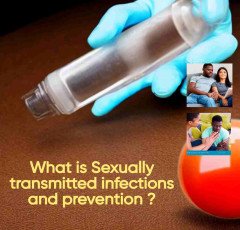
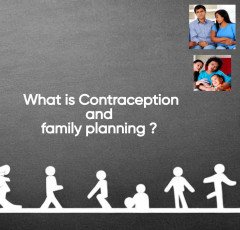


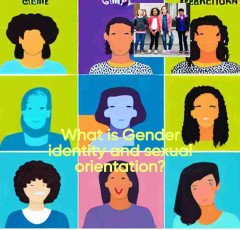

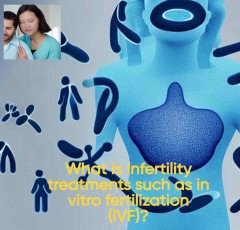

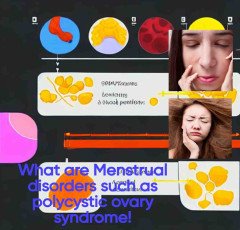






 One World Collection
One World Collection  NordVPN
NordVPN  BEST SELLER TOP10
BEST SELLER TOP10  Sennheiser
Sennheiser  Best Robotic Vacuum Cleaners
Best Robotic Vacuum Cleaners  ASUS Laptop
ASUS Laptop  SEO Checklist
SEO Checklist  Women Fashion
Women Fashion  Online Marketing
Online Marketing  Creative Brief For Video Shoot
Creative Brief For Video Shoot  NordLocker
NordLocker  ASPINAL LONDON
ASPINAL LONDON  Graphics & Design
Graphics & Design  Acer Laptop
Acer Laptop  The Click Engine
The Click Engine  TitTok Revolution
TitTok Revolution  Online Technology Classes
Online Technology Classes  SOFAS
SOFAS  Artificial Intelligence
Artificial Intelligence  Only For The United States
Only For The United States  NordPass
NordPass  Unlimited access to classes on illustration, photography, design, film, music
Unlimited access to classes on illustration, photography, design, film, music  Best Selling Books
Best Selling Books  The Secret Email System
The Secret Email System  Hello Theme
Hello Theme  Hot Bags For Pain Relief
Hot Bags For Pain Relief  Unreal Engine 5 For Beginners Learn The Basics Of Virtual Production
Unreal Engine 5 For Beginners Learn The Basics Of Virtual Production  Smart Doorbell
Smart Doorbell  Amazon Best Selling Products
Amazon Best Selling Products  Favorite Company (Cuelinks)
Favorite Company (Cuelinks)  ELECTRONIC ACCESSORIES
ELECTRONIC ACCESSORIES  RPM 3.0
RPM 3.0  Best Sellers On Amazon
Best Sellers On Amazon  All Wireless Products
All Wireless Products  Men Clothing
Men Clothing  Top Rated From Amazon
Top Rated From Amazon  1150+Trendy kids coloring pages Bundle
1150+Trendy kids coloring pages Bundle  Best Home Appliances
Best Home Appliances 
















